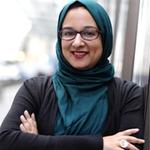11 Common Microaggressions We Should Avoid (and May Have Been Said to Us)
Lifestyle
|
Jul 1, 2020
|
3 MIN READ

This summer has been a summer of learning for me. Learning about the difference between not being racist and actively being anti-racist. About how to channel ihsan to debate with people who disagree vehemently with me (and when not to engage) and about learning about things I don't know well enough about myself without asking others to do the work for me.
Ultimately, shouldn't we all always be in a state of learning and growth?
One term or action I've learned a lot about in my coverage of Muslim and minority communities over the years is the word microaggression. You may already be familiar with this word or have had microaggressions said or used against you. You may have unknowingly (or maybe even knowingly) uttered a microaggression to someone else.
What is it exactly? What are common microaggressions used against minority communities, like Muslims, and more specifically, Black Muslims? Let's break this down.

Image source: UW Medicine
According to this article on Oprah.com:
A microaggression is a comment or gesture (whether made intentionally or not) that feeds into stereotypes or negative assumptions created around oppressed or marginalized groups of people. The term was first used in the 1970s by Harvard's Chester M. Pierce, MD. They tend to be based on a person’s race, ethnicity, religion, gender, sexual orientation, or disability—and to the recipient, can feel like an attack.Think of microaggressions as multi-level forms of communication. The words that are stated may seem neutral or even positive to the speaker, but that neutrality is a thin veneer for the bias that may lie beneath them. Derald W. Sue, PhD, a professor of psychology and education at Columbia University, studies microaggressions and their impact.
This is the key. It's not an outright, in-your-face form of aggression. It's often couched in what the person who is delivering the microaggressive question/statement believes to be kindness or curiosity. Often, the person isn't aware that what they are saying or asking is offensive. But if we don't kindly explain this to the person doling out the microaggression (biding that they are someone who you think will listen), how will anyone learn?
Here are 10 examples you may have heard yourself (adapted from the Oprah.com article):
1. “Where are you really from?" (Said to anyone who is nonwhite.)
2. “You don’t act like a Black person.” (Obviously, said to Black people.)
3. "When did you convert to Islam?" (Asked often to Black Muslims.)
4. "You're so articulate." (Said in different contexts to Black people and other minorities.)
5. "How you've overcome your disability is so inspiring." (Said to someone with a disability.)
6. You speak English so well! (Said to anyone who is nonWhite and said to me three times in the course of six months by the same checkout lady at Costco last year.)
7. "Your name is hard to pronounce. Can I call you this instead?" (Said to anyone with a foreign-sounding name.)
8. "You're Asian (or whatever ethnicity)? You should meet my one Chinese friend. You all may know each other." (Said different ethnic groups and/or races.)
9. "Is that your real hair? Can I touch it?" (Said to Black people.)
10. "I'm colorblind. I don't see color." (Said to any person of color.)
11. "I don't know how you deal with it all! (Said to a parent/family member of a loved one with a disability, something I've OFTEN heard in my life in reference to my son.)
These are just 11 often-heard microaggressions.
"Microaggressions are particularly toxic because the aggressor often doesn’t view their statement as an insult," writes Crystal Martin and McKenzie Jean-Philippe. "Those who deliver them may wonder, 'Why are you so sensitive,' or 'Why are you making this about race?'"
But those who say these things, even with the best of (or most innocent) intentions, are still committing a microaggression. If someone is made to feel uncomfortable or hurt by something you said, it's a microaggression. I'd wager that many of us have been on the receiving end of microaggressions in the past, but how many of us have uttered these kinds of phrases ourselves?
Starting with myself, I hope we all can open to learning and growing from what we've ourselves experienced and what we may have unknowingly or unknowingly said. And, if we ever commit a microaggression towards someone else, I pray we will be willing to apologize, learn, absorb and pledge not to do it again (and then really try not to do it again).
Subscribe to be the first to know about new product releases, styling ideas and more.
What products are you interested in?

